The figures achieved over 18 years of operation of the State Capital Investment Corporation (SCIC) have proven that the policy of transforming the method of state capital management from administrative orders to capital investment and business has brought about outstanding efficiency. Moreover, it also opens up a turning point for the Government's investors to rise up if institutional bottlenecks are removed.
The figures achieved over 18 years of operation of the State Capital Investment Corporation (SCIC) have proven that the policy of transforming the method of state capital management from administrative orders to capital investment and business has brought about outstanding efficiency. Moreover, it also opens up a turning point for the Government's investors to rise up if institutional bottlenecks are removed.
 |
| SCIC will focus resources to promote capital investment and business activities, prioritizing investment in key and important fields, creating spillover effects and leading and paving the way... (Photo: Duc Thanh) |
Affirming strategic vision
SCIC was established under Decision No. 151/2005/QD-TTg dated June 20, 2005 of the Prime Minister and officially came into operation from August 1, 2006.
SCIC was established in the context of the Party and Government's policy of promoting the arrangement, innovation, improvement of operational efficiency and competitiveness of state-owned enterprises; separating the state management function and the state ownership representative function in enterprises; transforming the state capital management method from administrative orders to capital investment and business, in which the state plays the role of shareholder - investor. SCIC operates under the Enterprise Law and is equal to enterprises of all economic sectors.
Economist Vo Tri Thanh commented that after 18 years of operation, SCIC has "fulfilled" its duties, state capital has been preserved and developed.
Compared to the time of establishment, by the end of 2023, SCIC's revenue increased 47 times; profit after tax increased 63 times; equity increased 17 times; total assets increased 13 times. The main business indicators all grew continuously, each year higher than the previous year.
During its operations, SCIC has received capital from 1,081 enterprises, exercised the rights and obligations of the owner towards the enterprises and the capital received by SCIC; arranged, equitized, and sold state capital invested in the transferred enterprises. The process of performing the above tasks as well as the results that SCIC achieved had important contributions from the Representative system. They are the “extended arms” of SCIC, helping the Corporation truly become an active shareholder and an effective investor in enterprises.
The inspection, examination and audit of SCIC's operations by state management agencies all assessed that SCIC has complied well with legal regulations, implemented capital investment and business activities openly and transparently, and preserved and developed state capital.
“The economic efficiency has been proven through data, but more importantly is what we can promote through this model, so that the new period can do better,” expert Vo Tri Thanh expressed his opinion when looking at SCIC's 18-year operation process.
Economist Tran Dinh Thien and economist Nguyen Duc Kien also shared the view that there should be drastic reforms to further promote the effectiveness of SCIC, in its role as a market-based government investment tool, not a state administrative agency.
 |
Historical turning point
During Prime Minister Pham Minh Chinh’s visit to the Middle East at the end of October, one of the contents of the meetings between senior leaders that caught the attention of investors was the possibility of connecting large financial resources from the Middle East to invest in strategic infrastructure, healthcare infrastructure, and education infrastructure in Vietnam. SCIC leaders attended and actively contributed to the meetings, aiming to attract large capital sources from this region.
Not only resources from the Middle East, opportunities to attract financial investment capital from developed economies such as the US, Europe, and Asia are also open, if Vietnam has a specific investment project portfolio. Infrastructure is the bottleneck of the economy, if cleared, it will be the key to opening the big leap that Vietnam aspires to achieve at historical milestones such as the 100th anniversary of the founding of the Party (2030), the 100th anniversary of the founding of the country (2045).
In fact, the vision of a SCIC with new roles has been expressed in Resolution No. 68/NQ-CP dated May 12, 2022 of the Government when it set out the requirement: "Research and enhance the role of SCIC, especially the role as a Government investor to attract more financial resources to large and important enterprises and projects".
The Reorganization Plan and the Project for Restructuring the State Capital Investment Corporation by the end of 2025 approved in Decision No. 690/QD-TTg (dated July 17, 2024) also set the goal of "consolidating SCIC to ensure sufficient financial resources, orienting after 2025 to become a financial investment organization with the leading equity scale in Vietnam".
In the approved SCIC Development Strategy, in the next 5 years (2026 - 2030), the Prime Minister directed SCIC to focus resources to promote capital investment and business activities, perform the role of the Government's investor, prioritize investment in effective industries and fields, key and important fields that the State needs to hold and SCIC has advantages, create spillover and leadership, pave the way for other economic sectors to invest and develop together.
When discussing this story, Mr. Nguyen Ba Hung, Chief Economist, Asian Development Bank (ADB) recommended that it is time for the role of state investment tools such as SCIC to be promoted and developed, not only for domestic investment, but also to be able to reach out to foreign investment, with the strategic goals of the State.
International experience shows that by promoting "iron fists" we will create great strides in the economy.
In China, the China Investment Corporation (CIC) was established with a capital of more than 2,000 billion USD, granted by the State Administration of Foreign Exchange of China (SAFE). In the structure of CIC's investment portfolio, the largest investments are overseas financial assets (33.1%) and domestic long-term stocks (61.9%).
Mr. Nguyen Ba Hung analyzed the Temasek model with the recommendation that it is "very suitable and worth considering for Vietnam". At the time of its establishment, Temasek had a market value of 354 million Singapore dollars, including shares in Singaporean state-owned companies that play a key role in the economy in the fields of real estate, finance, aviation, and telecommunications.
After completing the basic divestment activities, Temasek will step up investment activities, maintain flexible liquidity ratios, and build a solid but flexible investment portfolio to be able to change the portfolio structure when necessary.
Temasek’s portfolio value as at March 2023 was S$382 billion, with its domestic portfolio companies alone generating a consolidated revenue of approximately S$145 billion, providing Temasek with sustainable returns. The total annualized shareholder return since its inception in 1974 has been 14%; 47% of Temasek’s portfolio is in listed and liquid assets, and 53% is in unlisted assets and funds.
Recently, the Indonesian Government Investment Fund (INA) has emerged as a very effective and dynamic model. INA was established in 2021 with a charter capital of 5.2 billion USD, aiming to optimize the value of investments and attract foreign capital sources to serve economic development. Since its establishment, INA has attracted the attention of many international financial investors, including the US, Japan, the United Arab Emirates (UAE), and China, with capital commitments of up to tens of billions of USD.
To date, INA has implemented a number of "blockbuster" investment activities such as joining hands with DP World Group (UAE) to invest in seaport infrastructure with a total value of 7.5 billion USD; establishing a toll highway investment fund of up to 3.75 billion USD with the Canada Pension Fund and a unit of the Abu Dhabi Investment Authority in 2021; buying shares in the IPO of Telecom Tower Company - Mitratel (managing 16,000 telecommunication towers across Indonesia); cooperating with US Asset Management Company BlackRock to invest 300 million USD in online travel unicorn Traveloka (Indonesia).
By pouring money into strategic investment instruments, governments are also very “market-oriented” in evaluating investment performance to promote the initiative and dynamism of investment funds. Specifically, the evaluation of Temasek and GIC is not based on each individual investment, but on the overall portfolio performance. With INA, profits are used to set aside a mandatory reserve fund (until reaching 50% of INA’s capital) and the remainder is kept for reinvestment. The INA Board of Directors (in consultation with the Supervisory Board) determines the allowable limit on the level of loss in INA’s investment activities.
Source: https://baodautu.vn/su-menh-mo-duong-nhung-nguon-luc-moi-d230088.html



![[Photo] Buddha's Birthday 2025: Honoring the message of love, wisdom, and tolerance](https://vphoto.vietnam.vn/thumb/1200x675/vietnam/resource/IMAGE/2025/5/12/8cd2a70beb264374b41fc5d36add6c3d)

![[Photo] Prime Minister Pham Minh Chinh starts construction of vital highway through Thai Binh and Nam Dinh](https://vphoto.vietnam.vn/thumb/1200x675/vietnam/resource/IMAGE/2025/5/12/52d98584ccea4c8dbf7c7f7484433af5)
![[Photo] Prime Minister Pham Minh Chinh works with the Standing Committee of Thai Binh Provincial Party Committee](https://vphoto.vietnam.vn/thumb/1200x675/vietnam/resource/IMAGE/2025/5/12/f514ab990c544e05a446f77bba59c7d1)

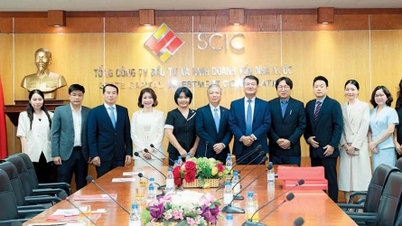
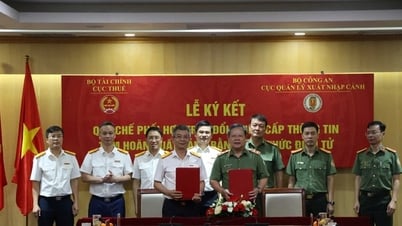




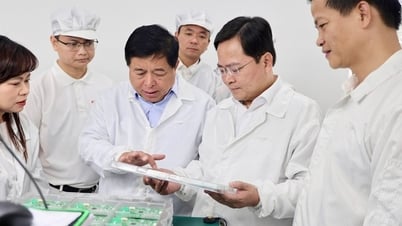






























































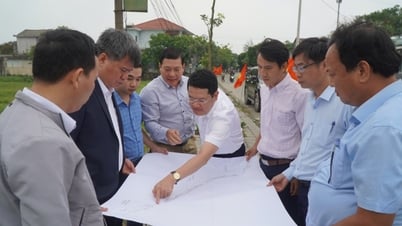


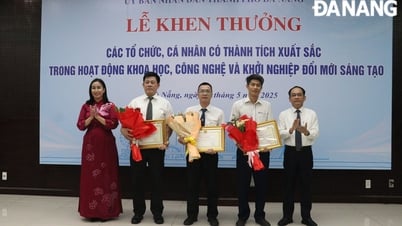












Comment (0)